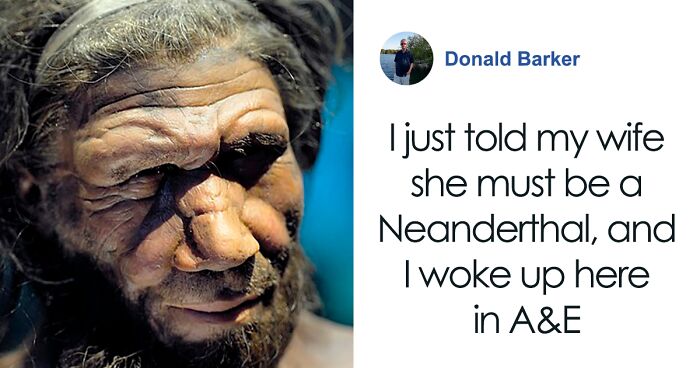
People Who Go To Bed And Wake Up Early May Share DNA With Neanderthals And Denisovans
The early bird catches the worm, just like their ancestors, the Neanderthals, did.
You read that right: new research suggests that people who go to bed early and wake up early are likely to share the same DNA as the extinct species of archaic humans.
The University of California in San Francisco came out with a study published on Thursday (December 14) in the journal Genome Biology and Evolution that compared genes related to early rising from people alive today and DNA from Neanderthals and Denisovans to spot the pattern.
- Early risers may share DNA with Neanderthals and Denisovans.
- Research uses UK database of genetic, health, lifestyle info.
- Neanderthal genes may reflect adaptation to northern latitudes.
New research suggests people who go to bed early and wake up early are likely to share the same DNA as Neanderthals
Image credits: Werner Ustorf
Image credits: AquilaGib
The Denisovans, like the Neanderthals, are also an extinct subspecies of archaic humans that lived during the Lower and Middle Paleolithic.
By using a UK-based database that holds genetic, health, and lifestyle information on half a million people, it found those with the same early-rising variants as Neanderthals had self-reported their preference for waking up early, the Independent reported.
“We’ve found many Neanderthal variants that consistently associate with a propensity for being a morning person”, an evolutionary geneticist said
Image credits: yanalya
Image credits: Andrea Piacquadio
Tony Capra, an evolutionary geneticist at the University of California, San Francisco said: “We’ve found many Neanderthal variants that consistently associate with a propensity for being a morning person.
Tony reportedly explained that many modern humans probably carry the Neanderthal gene because it helped their ancestors adapt to life at higher latitudes in northern Europe.
He further explained: “We don’t think that being a morning person is actually what was beneficial. Rather, we think it is a signal of having a faster running clock that is better able to adapt to seasonal variations in light levels.
Neanderthal DNA may play a small role in swaying the course of Covid-19 infection
Image credits: Claire Houck
Image credits: Daniela Hitzemann
“At higher latitudes, it is beneficial to have a clock that is more flexible and better able to change to match the variable seasonal light levels.”
Professor Mark Maslin, of University College London, who was not involved in the study, told the Guardian: “Now we have genetic evidence that some of us really are morning people.
“When humans evolved in tropical Africa, the day lengths were on average 12 hours long. Now hunter-gatherers spend only 30% of their awake time collecting food, so 12 hours is loads of time.
Scientists have been studying the genetic differences between archaic and modern humans since 2010
Image credits: Ryan Somma
“But the further north you go, the shorter and shorter the days get in winter when food is particularly scarce, so it makes sense for Neanderthals and humans to start collecting food as soon as there is any light to work by.”
Scientists have been studying the genetic differences between archaic and modern humans since 2010, when the Neanderthal genome was sequenced for the first time, as per CNN.
The same year, genetic sequencing of ancient DNA from a fossil also revealed the Denisovans, which were unknown prior to that time, the American broadcaster reported.
Image credits: Neanderthal-Museum, Mettmann
Moreover, Neanderthal DNA may play a small role in swaying the course of Covid-19 infection, research has found, and a study published in June reported a link between Neanderthal DNA and Duputytren’s disease, an abnormal thickening of tissue in the hand.
For more than 350,000 years, Neanderthals inhabited Europe and Asia until, in a sudden change by evolutionary standards, they disappeared around 40,000 years ago. This was at around the same time the anatomically modern human Homo sapiens emerged from Africa.
According to Science Focus, we aren’t sure when the Denisovans died out, with limited DNA evidence even suggesting they may have survived in New Guinea or its surrounding islands until 15,000-30,000 years ago.
People had funny reactions to the new research
Poll Question
Thanks! Check out the results:
34Kviews
Share on FacebookExplore more of these tags
This is me. Up at 5 am every single morning- even on weekends. I would LOVE to be able to sleep in- just once, but my body and brain has other ideas!
Does this mean that early risers will eventually go EXTINCT???? OH JOY<3<3<3
Actually, the early risers don't bother me. I am usually one out of necessity myself. And I even really *like* to experience our world at sunrise (though prefer this during shorter daylight time of year :-) It's the ATTITUDES that sometimes accompany them that I'd like to see extinct
Load More Replies...This is me. Up at 5 am every single morning- even on weekends. I would LOVE to be able to sleep in- just once, but my body and brain has other ideas!
Does this mean that early risers will eventually go EXTINCT???? OH JOY<3<3<3
Actually, the early risers don't bother me. I am usually one out of necessity myself. And I even really *like* to experience our world at sunrise (though prefer this during shorter daylight time of year :-) It's the ATTITUDES that sometimes accompany them that I'd like to see extinct
Load More Replies...
 Dark Mode
Dark Mode 

 No fees, cancel anytime
No fees, cancel anytime 






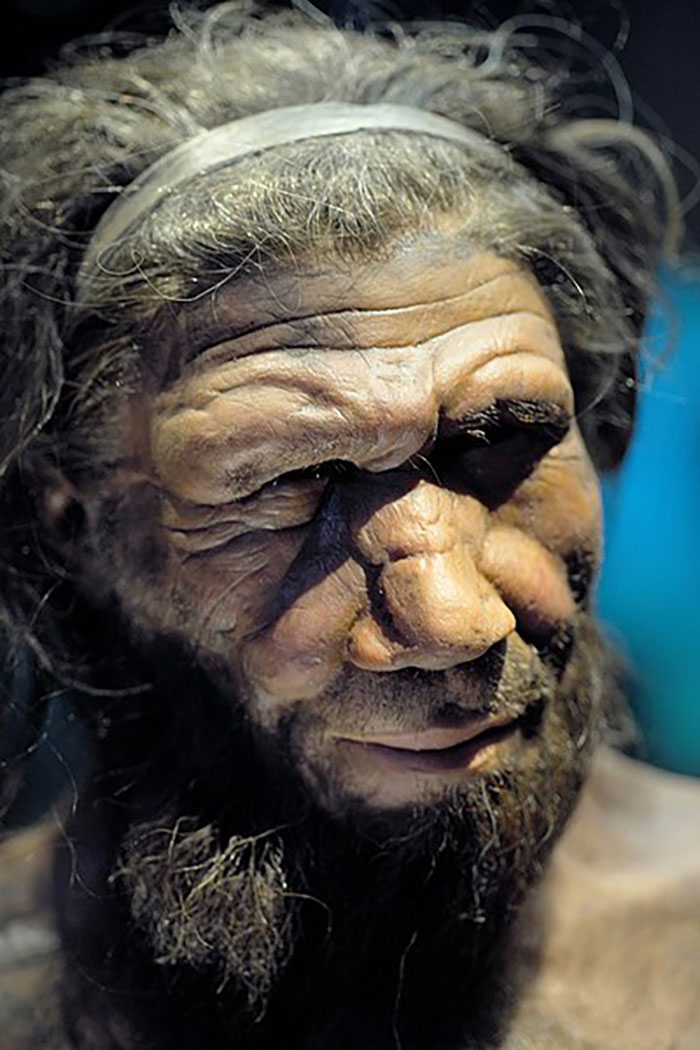
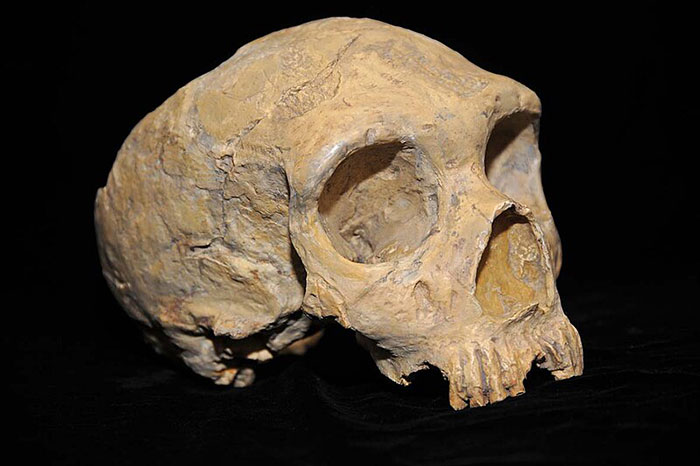


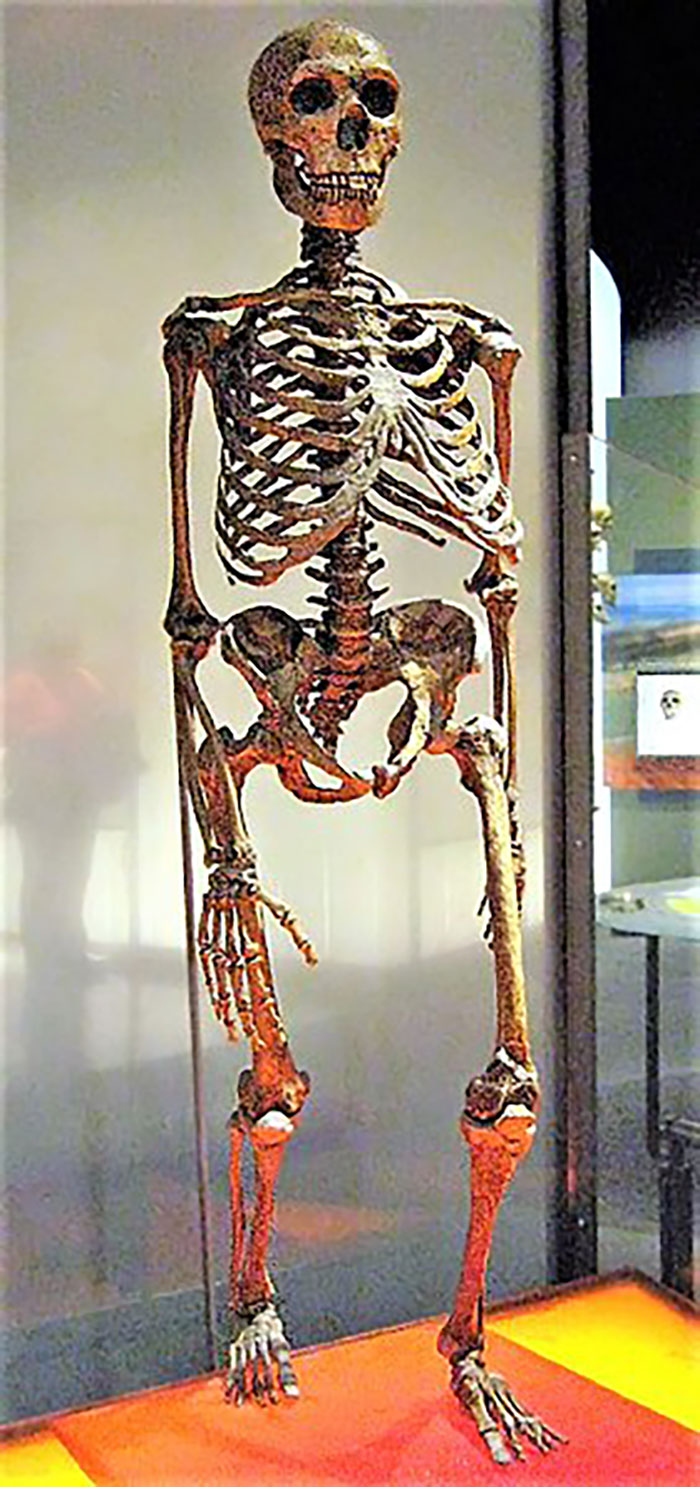
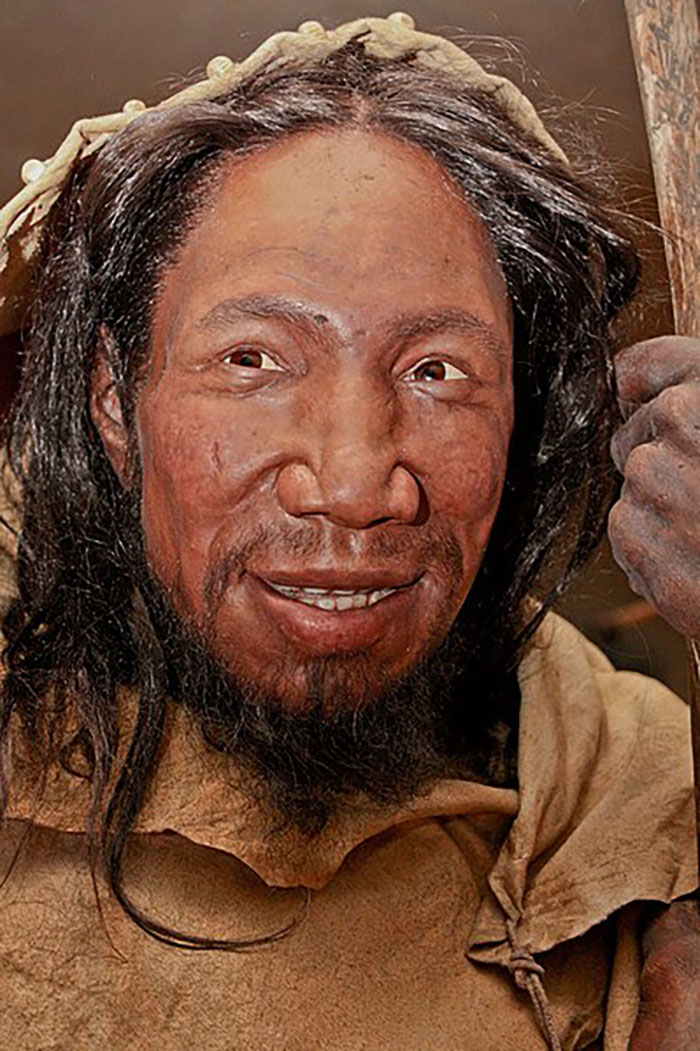
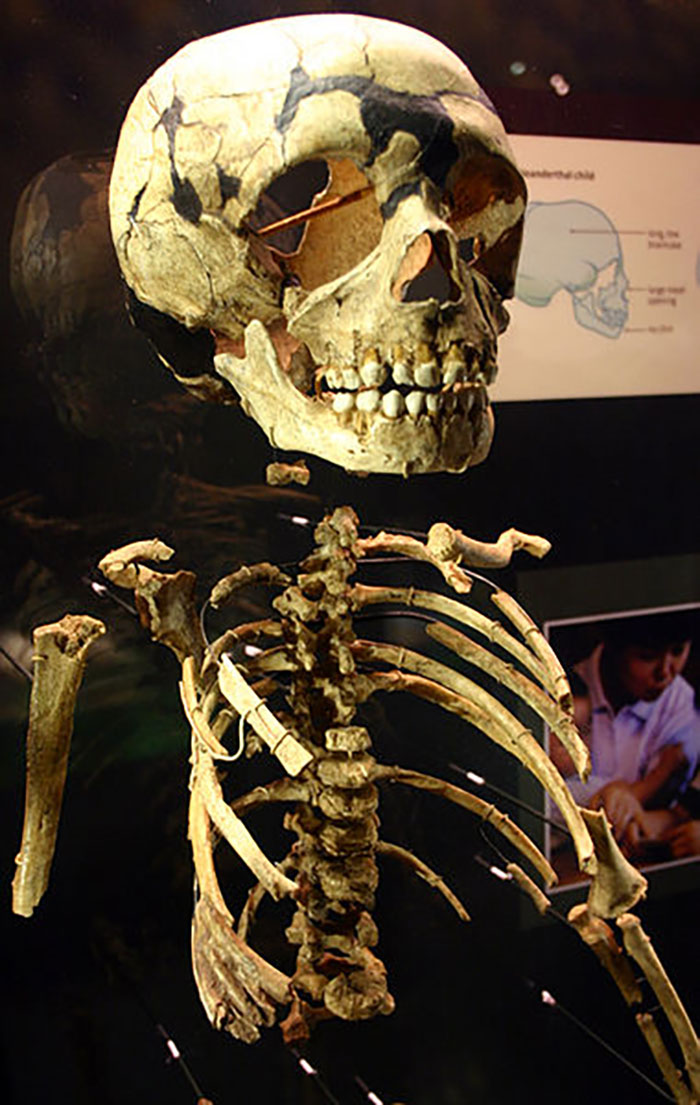
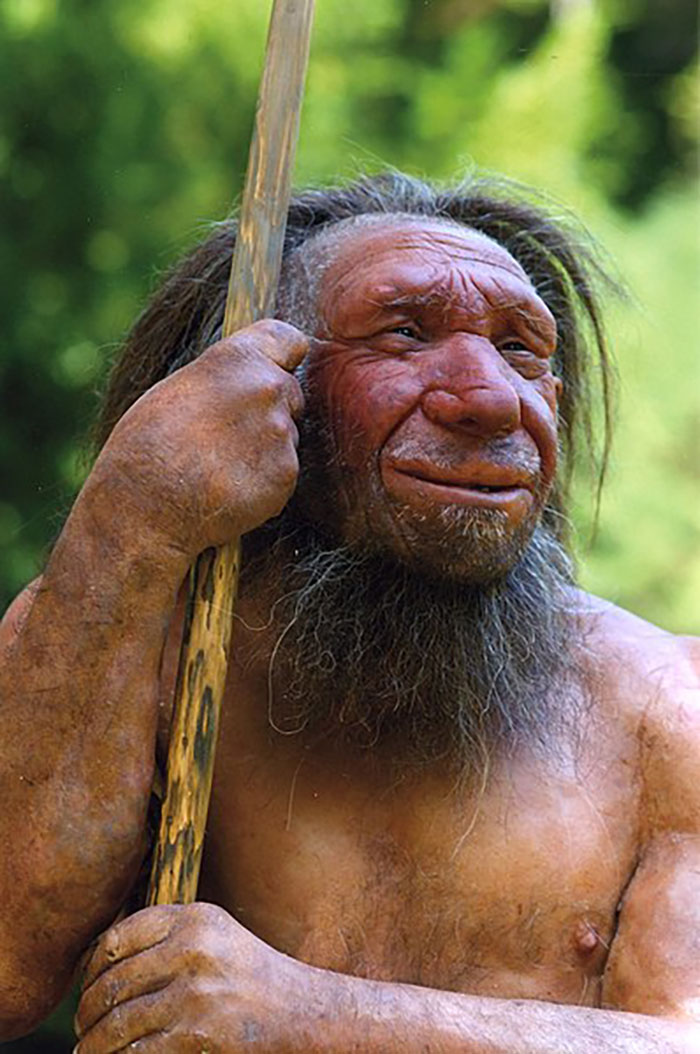
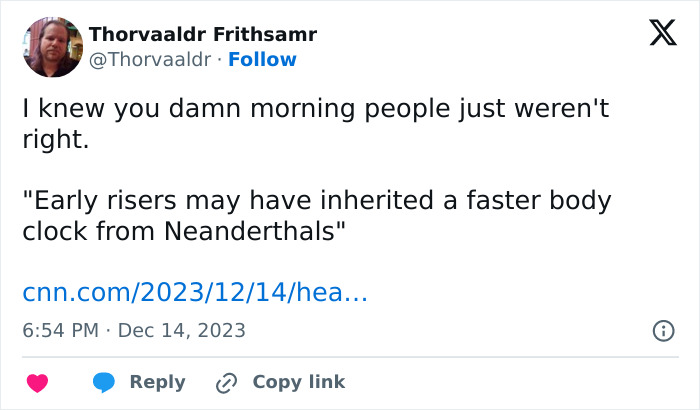
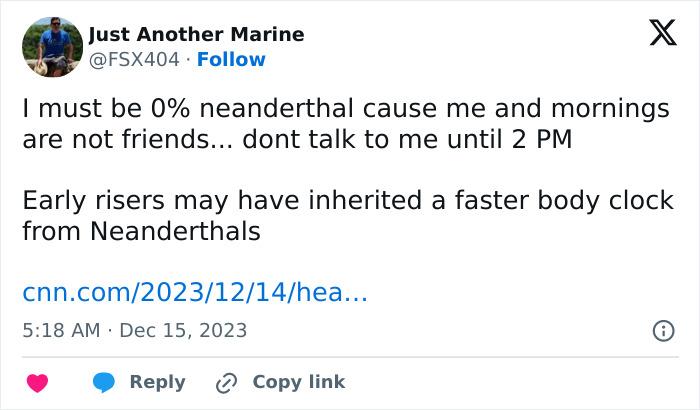





















































42
14